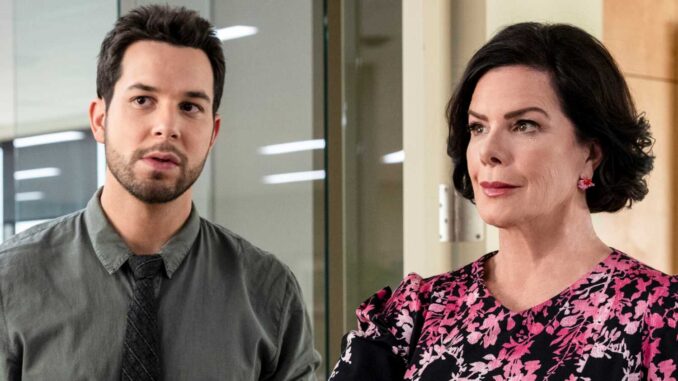
The Bullet Dodged: Relief and Reflection in Heather Morris's So Help Me Todd
Heather Morris, forever etched in the minds of many as the sharp-tongued cheerleader Brittany S. Pierce from Glee, made a memorable guest appearance on the CBS dramedy "So Help Me Todd." Her role as Judy Winslow, a seemingly unassuming woman embroiled in a complex case of corporate espionage, allowed her to showcase a different side of her acting prowess. Yet, behind the performance, there lingered a sense of relief. Relief that she hadn't been asked to embody a certain trope, a specific character arc that she felt would have been a disservice to both herself and the audience. This relief stems from a deeper understanding of her own typecasting experiences and a desire to break free from pre-conceived notions.
For many actors, typecasting is an unavoidable reality. It can be a blessing, leading to consistent work within a familiar comfort zone. However, it can also be a suffocating cage, hindering artistic growth and perpetuating limiting stereotypes. For Morris, the shadow of Brittany, with her signature blonde hair and ditzy demeanor, looms large. While she cherishes the role and the opportunities it afforded her, she also understands the potential for that character to overshadow her future endeavors.
In "So Help Me Todd," the writers could have easily leaned into this stereotype. Judy Winslow, with her bubbly personality and perceived naiveté, could have easily been written as a comic foil, a clueless bystander swept up in Todd's chaotic world. She could have been portrayed as the "dumb blonde," a trope that, while historically prevalent in comedy, often relies on lazy writing and reinforces harmful gender stereotypes. Had Morris been asked to play Judy in this manner, it would have been a repetition of a role she had already inhabited, a missed opportunity to showcase her range and depth.
Instead, "So Help Me Todd" offered a subtle subversion. Judy, while initially appearing somewhat bewildered, possesses a quiet intelligence and a surprising resilience. She is not a caricature, but a nuanced individual with her own motivations and agency. This allowed Morris to explore the character's vulnerability and strength, painting a more complex and engaging portrait than a simple "dumb blonde" trope would have allowed. This distinction is crucial because it allowed Morris to challenge the assumptions that audiences might have made based on her previous work.
The relief she felt, therefore, was not just about avoiding a repetitive performance. It was about reclaiming her narrative as an actor. It was about proving that she is capable of more than just playing into established stereotypes. By portraying Judy with depth and nuance, Morris demonstrated her versatility and her commitment to challenging expectations.
Furthermore, avoiding the "dumb blonde" trope also speaks to a larger trend in contemporary television: a move away from simplistic and often offensive characterizations. Audiences are increasingly demanding representation that is both authentic and empowering. To perpetuate harmful stereotypes, especially those targeting women, would not only be lazy writing but also a disservice to the audience. By crafting Judy as a multifaceted individual, "So Help Me Todd" actively participates in this positive shift, offering a more nuanced and respectful portrayal of women in media.
In conclusion, Heather Morris's experience on "So Help Me Todd" is a testament to the power of nuanced character development and the importance of challenging typecasting. The relief she felt at not being asked to play into the "dumb blonde" trope highlights her commitment to artistic growth and her desire to break free from limiting stereotypes. By embracing the complexities of Judy Winslow, Morris not only delivered a compelling performance but also contributed to a more nuanced and respectful representation of women in television. The bullet was dodged, and in its place bloomed an opportunity for growth, reflection, and a welcome departure from the pre-conceived notions that often define an actor's career.
